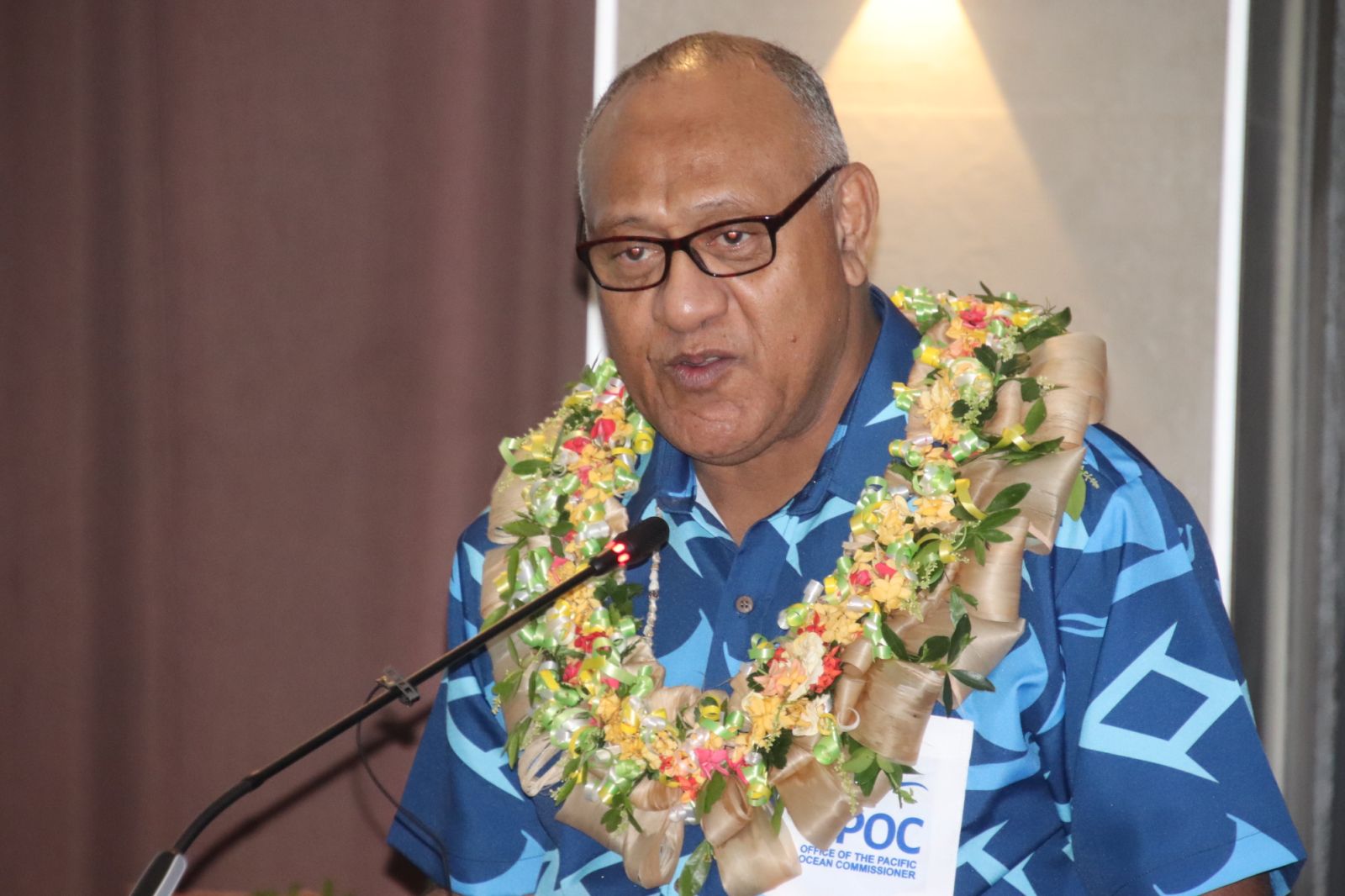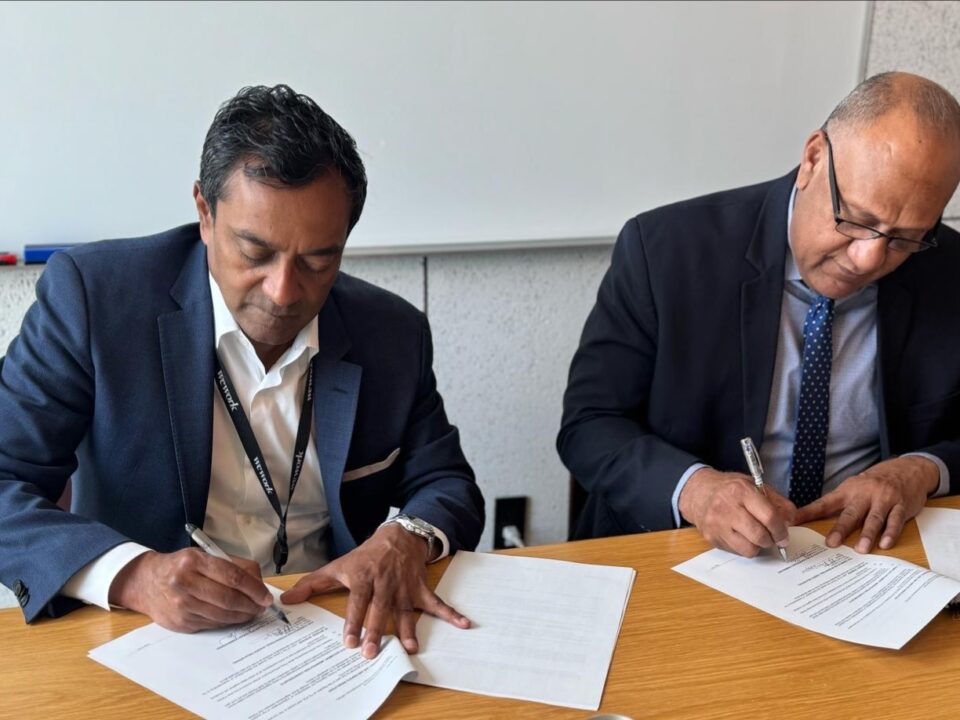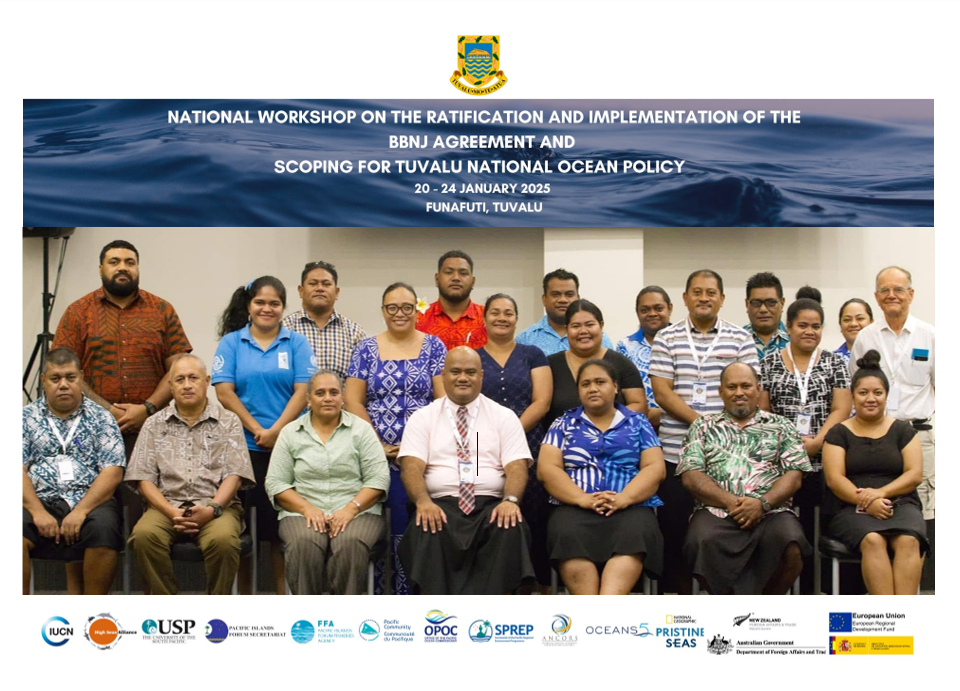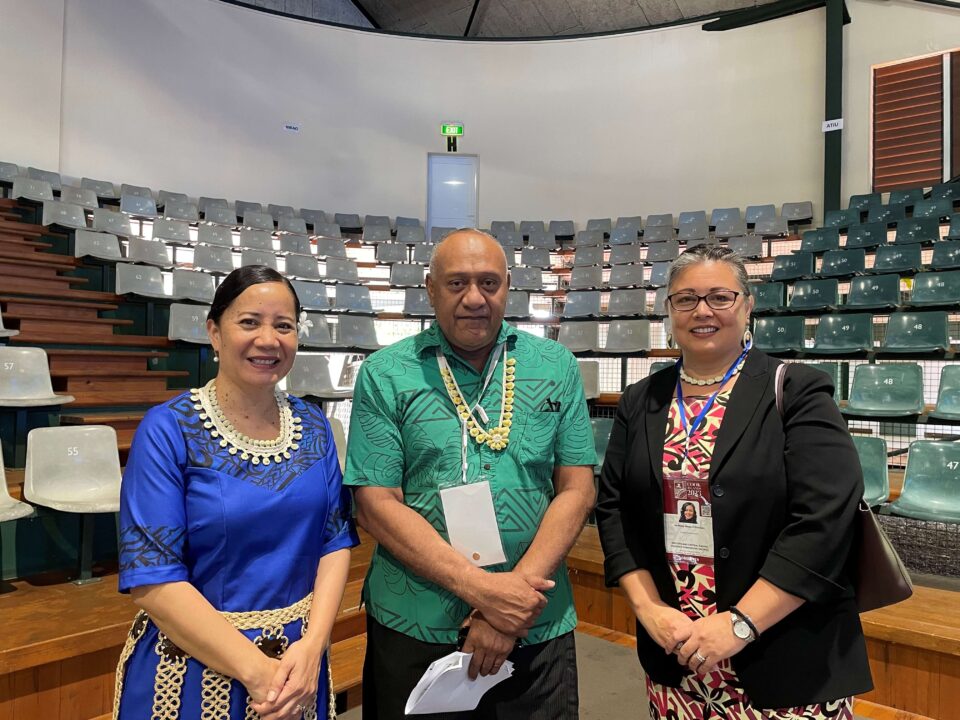
Regional Ocean Policy and Governance Dialogue
Statement by Pacific Ocean Commissioner- Dr Filimon Manoni
21 August 2023
The Minister Agriculture Fisheries and the Environment Stephen Victor
UNSG Special Envoy for the Oceans
Excellencies/Senior Officials and Heads of Delegations from Forum Member
Representatives of the Council of Regional Organisations of the Pacific
Permanent Chair of the CROP, Deputy Secretary General Esala Nayasi
Director General Forum Fisheries Agency Dr, Manu Tupou-Roosen
Director General SPREP Sefanaia Nawadra
Deputy Director General the Pacific Community Paula Vivili
Deputy Director General Jammes PIDP
Stake holders Organizations
Ladies and Gentlemen
Nisa Bula Vinaka
Iakwe
Alii,
Kia Orana,
Ia Orana,
Kia Ora,
Maolo e lelei,
Mauri,
Gutpela Morning
Welcome to all of you friends and supporters of the Oceans. It is so wonderful to be with you today and this week. This is not a polite platitude. We are gathered here today at a very opportune moment in time for our region and our Oceans.
I have assumed the role of Pacific Ocean Commissioner about 3 weeks ago after a friendly but effective divorce between the Forum Secretariat and OPOC. Jokes aside, the Leaders decision under the Suva agreement is momentous occasion, in particular for our Ocean community. You see, in the past 8 years, I have navigated throughout the Pacific in various capacities. Whether as legal adviser at the FFA, Attorney General of the Marshall Islands, or legal adviser then Deputy Secretary General for the Pacific Islands Forum Secretariat the need for robust coordination at the regional level in the delivery of Leaders priorities. In the recent past, I have witnessed the value of OPOC as an enabler of constructive engagement and coordination across sectors – and I point to the as an example. On this note I take this moment to warmly thank my two immediate predecessors, Henry Puna, Secretary General of the Forum who is himself an oceans champion and expert in his own right, and Dame Meg Taylor, both of whom I had the privilege to work alongside. They have no doubt contributed to shaping and steering the OPOC to where it is today. I also recognize the work of Mr Neroni Slade who contributed to making the OPOC a reality. I am humbled to have been called to the helm to maneuver the oar of our Pacific Va’a – for those are indeed huge shoes to fill. But with all of your help, I look forward keenly to the great journey that lies ahead.
We are people of the Ocean. Whether we call ourselves the Blue Pacific or Oceania, or the Blue Pacific Continent Epeli Hau’ofa would say that “we are the ocean, and the ocean is us”. But he also foreshadowed that “the water that has united subregions of Oceania in the past may become a major divisive factor in the future relationships between our countries.” So let us step up to the plate, as generations of today and do the hard work that is necessary to make sure this does not come pass, but that Our Ocean continues to be the motivation that unites us. And indeed, we cannot and should not ignore that, while we are all proud of our Ocean heritage, we may at times have instances where we have to work a bit harder to find a common path, including when it comes to matters of the ocean.
Our ancestors were people of the sea. Around the world, their unsurpassed navigation skills and engineering are celebrated. What I feel also worth admiring is their ability to cohabit in small canoes for weeks, if not months, and reaching the shores safely. They strived as navigators because of their ability to corral crews and capitalized on each other’s strengths in support of their common objective. Through these voyages, they have also cultivated this very powerful and very Pacific skill of talking through our divergences and finding solutions. Expressing one’s view, listening and hearing each other out to find a common way forward, sometimes around a tanoa of kava, this is how our people have addresses differences of views – the Pacific way.
This is why I have decided that my first official engagement as Commissioner would be a Dialogue with you because I want to listen, I want to learn, and I want us to talk. Almost every week, we hear of a new report that tells us the ocean is warming, sea levels are rising, fish stocks are depleting, pollution, including plastic, is growing and spreading in our foods and bodies. Last week’s State of the Climate in Southwest Pacific Report is one of so many such reports. We hear the climate is warming, the gulf stream may be collapsing in a couple of years. We do not need the reports. We see islands burning. We see our fish getting smaller and our catches diminishing. We see the debris floating. We see our shores eroded. We see. We know. We feel distraught and fear for our security, sovereignty, and future.
Yet, we also hear glimmers of hope such as the adoption of the Kunming Montreal biodiversity framework last December, the adoption of the BBNJ agreement on biodiversity in international zones in June, or the WTO agreement on fisheries subsidies last year. What do these contradicting pieces of news tell us? That yes, we are faced with many challenges, but we also have many opportunities, which we do not necessarily tap into. We are often too focused on what is wrong, and on our weaknesses, rather than recognizing our strengths, individual and collective. One of which is our identity as People of the ocean; Our connection to the ocean, and through the ocean, to each other. So, we must have hope and ambition.
And this is also what the 2050 strategy is asking us to do. A roadmap to take us to the vision and ambition that we as a region has set for ourselves. This dialogue is indeed timely as we look to re-orient our strategic directions as institutions and as a region in anticipation of the 2050 Strategy. We look forward to the endorsement of the Implementation Plan in taking forward a comprehensive strategy under the relevant thematic areas.
Last week, I met with my team to take stock of and unpack the significance of the Leaders decision on the role of OPOC, what it has achieved in the past and future potential in lending credibility and meaning to the mantra that we are stewards of the Ocean, and what that means to each and every one of us . Now, I would like the opportunity to hear from you and to learn from you. Make no mistake, I truly am very excited to hear from you and to learn from the breadth of expertise you bring with you. You have come into this dialogue to speak from your professional expertise lens, to share your national positions and circumstances, perspectives which I highly value. In addition though, I also wanted to hear from you simply as peoples of the Pacific, as peoples of the Ocean.
This dialogue should indeed be governed by similar principles of the Pacific Ocean Alliance, which you are all part of. The POA is a tool established by our Leaders and who mandated OPOC to coordinate. It is a forum of all ocean stakeholders including governments, CROP, civil society organisations, academia, private sector, where participants are encouraged to leave their professional hats at the door and speak simply from their Blue Pacific hearts. So as members of the POA, this week, can I strongly encourage us to conduct our dialogue in the next few days with open heartedness, respect and understanding.
I invite you to look around, and to acknowledge that this space is a safe space for us. Let us feel free to exchange our views. Let us listen. Let us seek to understand different and sometimes divergent views. Let us consider ways to accommodate our varying interests. Let us be bold but in a respectful manner in pursuing our goals as a region. And together, let us identify how to make our regional ocean policy more effective, more coordinated, to serve our People most effectively. I kook forward then to what is really shaping up to be a very exciting few days.
Thank you again for coming today
Komol tata and Vinaka Vakalevu.
For more information:
Mereseini Marau
Ocean Communications Officer
+679 7751383



